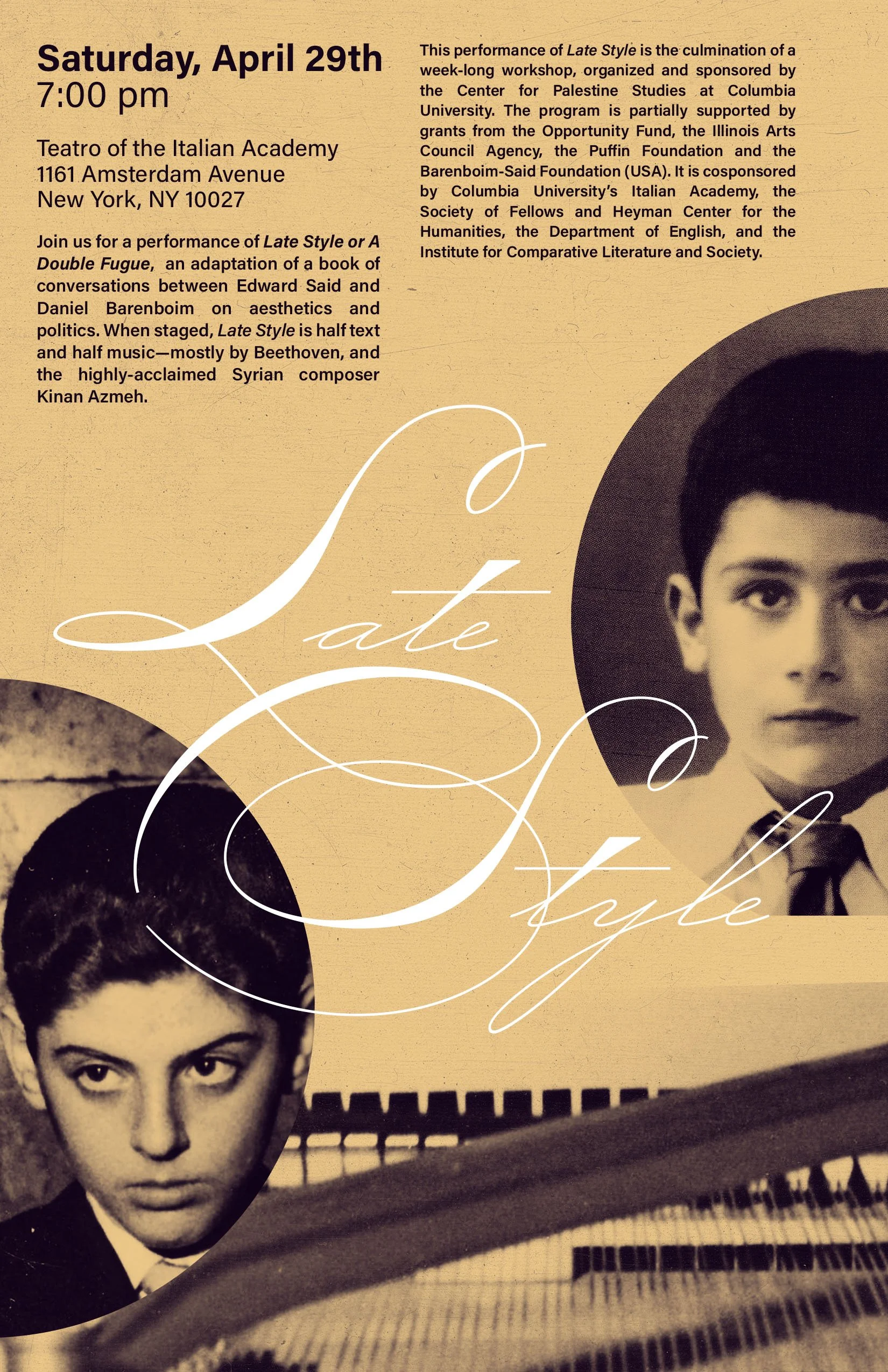
Late Style or A Double Fugue: Beethoven and the West-Eastern Divan Orchestra
Join us for a workshop concert of Late Style or A Double Fugue, a staged adaptation of Parallels and Paradoxes: Explorations in Music and Society (Vintage Press, 2002), on Saturday, April 29th at 7pm.
Location
Teatro of the Italian Academy
1161 Amsterdam Avenue
New York, NY 10027
Late Style or A Double Fugue: Beethoven and the West-Eastern Divan Orchestra
Late Style invites us into the extraordinary friendship between a Palestinian-American scholar and an Israeli conductor and the global orchestra they imagined into being. Edward Said and Daniel Barenboim created the West-Eastern Divan Orchestra to bring together Arab and Israeli musicians. It became an unsettling, humbling, and joyful experiment in understanding the “other.” This performance piece is an adaptation of Parallels and Paradoxes: Explorations in Music and Society (Vintage Press, 2002), a book of conversations between Said and Barenboim on aesthetics and politics. When staged, Late Style is half text and half music—mostly by Beethoven, and the highly-acclaimed Syrian composer Kinan Azmeh.
Late Style follows the form of Beethoven’s late String Quartet in B-flat Major, Op.130 (1825). It has six movements ending with a performance of the Grosse Fuge. Beethoven’s late work is known for its radicality, as “music for a later age.”
Late Style is timely: it speaks about music and late Beethoven, Israel and Palestine, immigration, belonging, the rise of totalitarianism, and the necessity of the arts to find political solutions. Late Style—with all of its music—is beautiful and expresses radical hope in a world that cannot afford to lose it.
The music is performed live by a quartet from the West-Eastern Divan Orchestra.
Late Style Performers and Team
Omar Metwally: Edward Said
Andrew Polk: Daniel Barenboim
Michael Laurence: Understudy
The Divan Quartet
Bassam Nashawati: Violin
Nurit Pacht: Violin
Sindy Mohamed: Viola
Lia Chen Perlov: Cello
Amer Hasan: Clarinet
Kinan Azmeh: Composer
Rony Rogoff: Music Director
Tanya Jayani Fernando: Writer and Director
Ken Cerniglia: Dramaturg
Susan Jahoda: Video Artist
Saba Husain: Directorial Assistant
This performance of Late Style is the culmination of a week-long workshop, organized and sponsored by the Center for Palestine Studies at Columbia University. The program is partially supported by grants from the Opportunity Fund, the Illinois Arts Council Agency, the Puffin Foundation and the Barenboim-Said Foundation (USA). The performance is cosponsored by Columbia University’s Italian Academy, the Society of Fellows and Heyman Center for the Humanities, the Department of English, and the Institute for Comparative Literature and Society. It is part of The Edward W. Said Memorial Lecture Series, organized by The Society of Fellows and Heyman Center for the Humanities.















